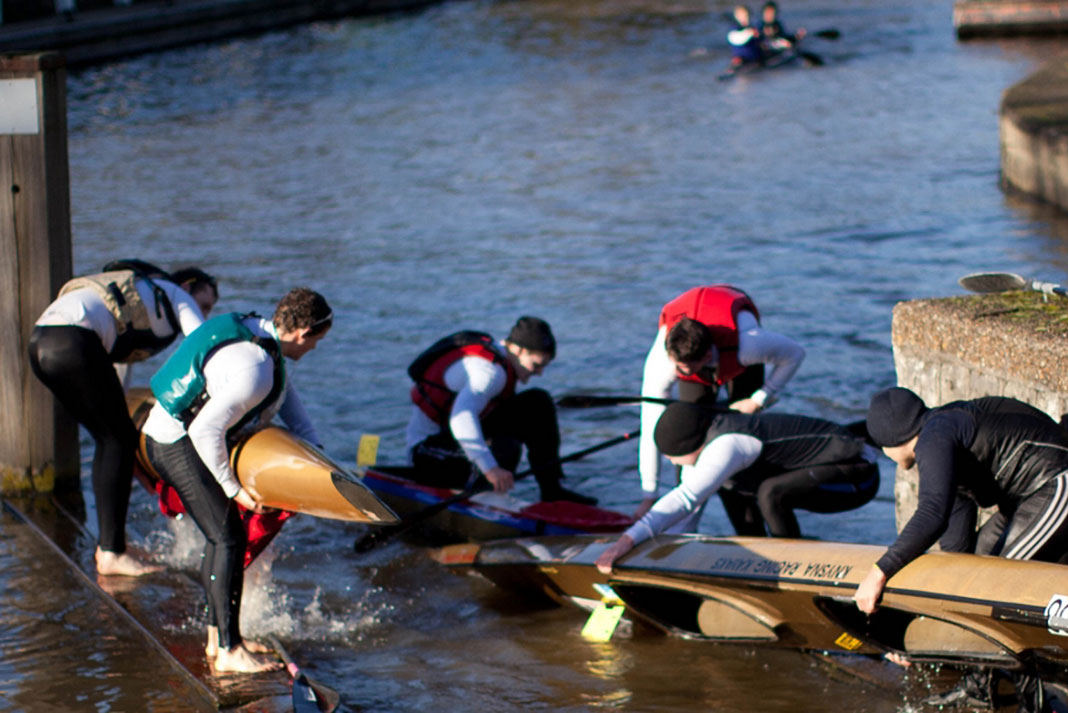Few paddlers are capable of what marathon canoe racers do every other weekend—keeping pace through a 1,000-mile course, enduring both grinding monotony and gruelling pain and winning sprint finishes to end 15-hour races. We wanted to know how they do it, so we three experts to share their marathon canoe racing techniques. Meet the canoe racers who have proven to be the toughest of the tough.
Meet our expert marathon racers
Lynne Witte » Age 55
Hometown: Mt. Clemens, Michigan
Years racing: 37
Races per year: 15
Bragging rights: AuSable River Canoe Marathon in both mixed and women’s categories.
Rod Price » Age 49
Hometown: Orlando, Florida
Years racing: 30
Races per year: 10 to 25
Bragging rights: Yukon 1000 Canoe and Kayak Race, two-time winner of Everglades Challenge, three-time winner of the Adirondack Canoe Classic and six-time winner of the Suwannee River Challenge. Author of Racing to the Yukon—A Lifetime of Adventure Racing from the Everglades to the Amazon to the World’s Longest Canoe Race.
Steve Lajoie » Age 33
Hometown: Mirabel, Quebec
Years racing: 19
Races per year: 10
Bragging rights: Three-time winner of La Classique de Canots de la Mauricie, the Triple Crown event starting in La Tuque, Quebec, and finishing in Trois-Rivières, Quebec.
Marathon canoe racing techniques
Is it better to lead or follow?
“Riding another boat’s wash can be nice for a time, but I always prefer to be leading at the finish.” – Lynne Witte
“I prefer to give the competition a good view of my back right after the start. In a stage race, if I have the lead after the first day then I might draft behind the second-place canoe.” – Rod Price
“Being part of the pack can be more fun than having a big lead, but if you have a good lead you can set your own pace, which is a great advantage in a long race. Of course, knowing that others won’t catch up is also fun.” – Steve Lajoie
What is your training regimen?
“During the spring, I’m paddling five days a week with two-hour weekday sessions and four- or five-hour weekend sessions. During the racing season, I’m out five to six days a week, including two three- to four-hour sessions, some six hour workouts for marathon training and weekday interval training. I also bike and run in the summer with my dogs and cross country ski and dog sled in the winter.” – Lynne Witte
“Living in Florida, I train on the water all year. Three to four paddling workouts a week. Weekday sessions are between one and a half to three hours, weekend sessions can be 12 hours if a big race is coming up.” – Rod Price
“During the summer, I paddle five to six times a week and run five kilometers four times a week. During the winter, I cross-country ski four times a week. In all, I train from 12 to 20 hours a week.” – Steve Lajoie

How do you stay motivated?
“I set goals for each race. If I’m flagging, I focus on the time or placing I’ve set for myself.”
– Lynne Witte
“I focus on the competition and assume they are struggling too. Sometimes you only need to be stronger than your competition for a few minutes at a key moment in a race.” – Rod Price
“I keep things simple by focusing on the moment at hand, and not what’s to come. What is to come in long races could make anyone lose motivation.” – Steve Lajoie
How do you cope when you hit the wall?
“There is only one remedy: to eat. The best foods are basic. For longe races, it’s potatoes, cheese and chicken. For shorter races, its grapes and watermelon.” – Lynne Witte
“I view my body as an engine. If I am fatigued, I need more fuel, so I’ll increase my energy intake. I like to drink Perpetuem by Hammer Nutrition. I also eat a lot of bananas and a variety of snack bars.” – Rod Price
“I stay quiet and focus on my technique, especially the catch. The catch is the most important part of the stroke. You have to be strong in the beginning of the stroke and then smooth it out. I also try to avoid bonking before it happens by eating and drinking. I drink about one liter every hour, switching between water and Powerade. The best foods are fruit, PowerBars and Hammer Gels.” – Steve Lajoie
How can aspiring marathon canoe racers improve their own racing technique?
“Get your own C1 and find a local group to spend time with experienced paddlers. Paddlers like to help each other.” – Lynne Witte
“Jump in! Remember that even a disappointing result makes you stronger.” – Rod Price
“Be prepared for a long haul. It takes many years to get good.” – Steve Lajoie


